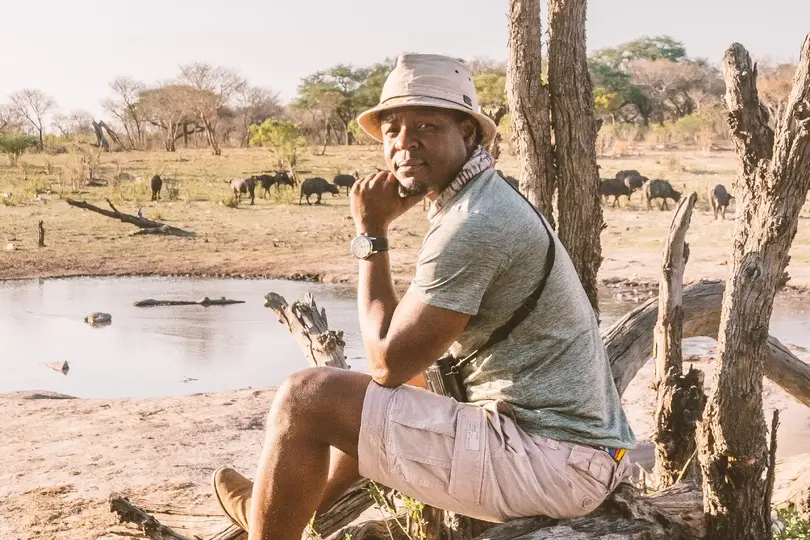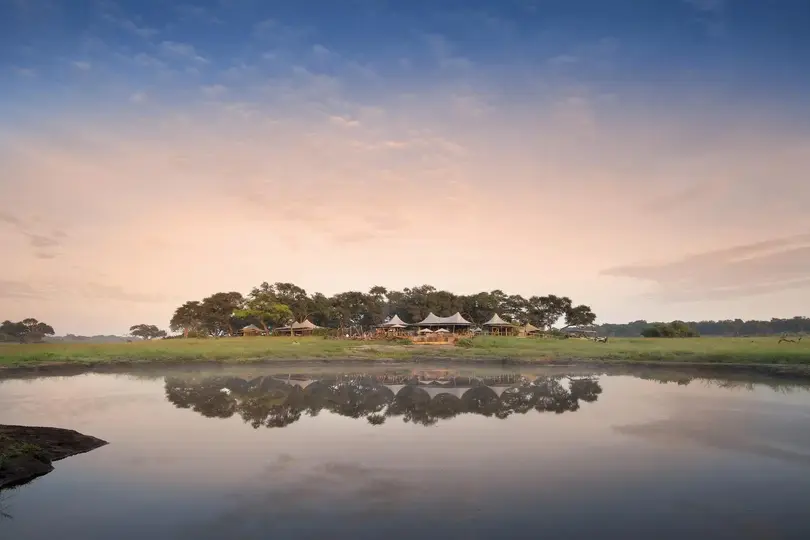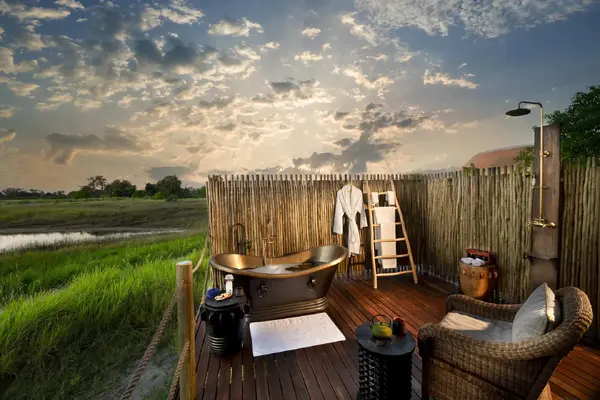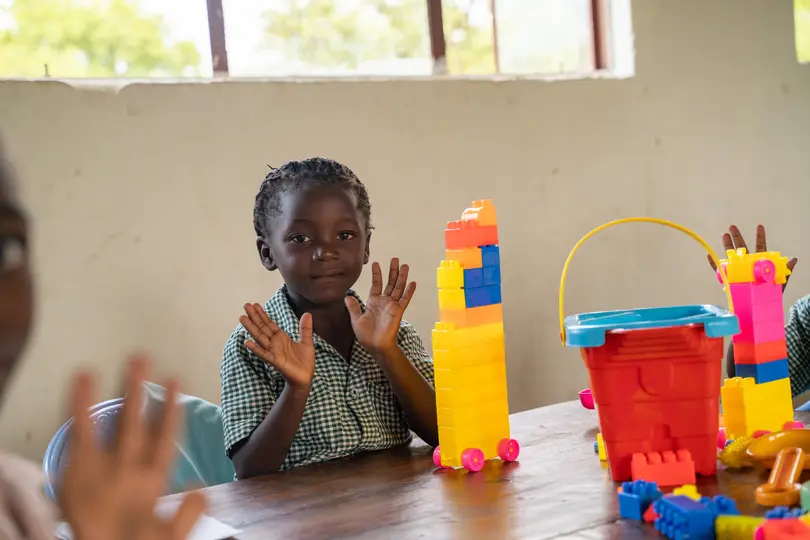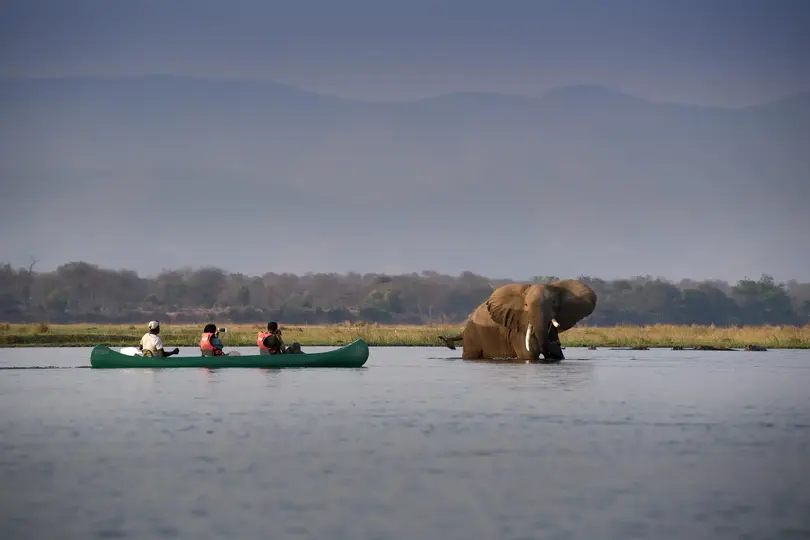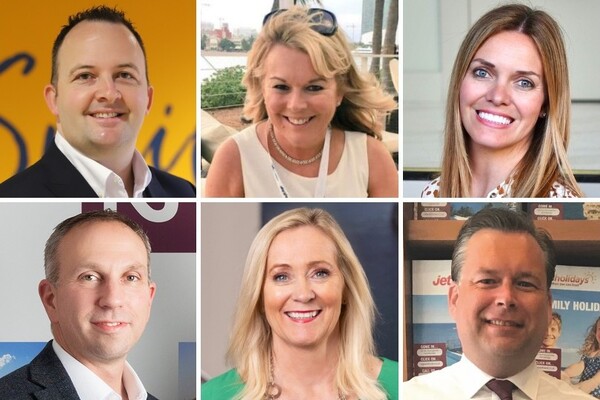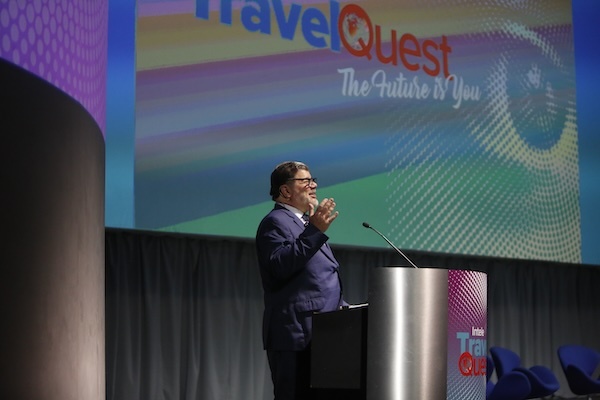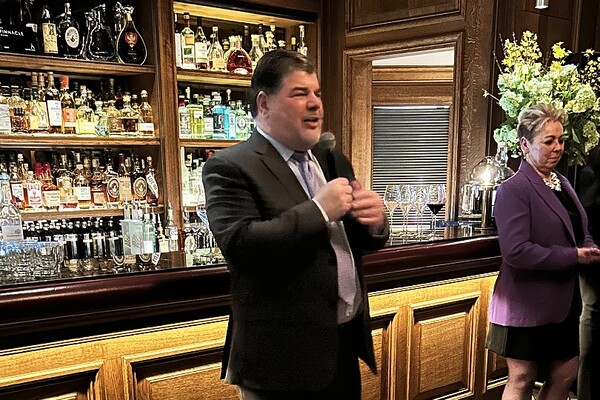‘Impact washing is common among the privileged few in Africa’
 Katherine Masters
Katherine MastersTo mark the start of Black History Month, we talk to Beks Ndlovu, founder of African Bush Camps, about the importance of making black communities equity partners in the development of tourism in Africa
“History is not told out of the mouths of black people,” says Beks Ndlovu, when we chat about the significance of Black History Month. “It’s only in the last 50 years that we’ve been able to share our own experiences. When you stop telling stories, the knowledge disappears. And when history is forgotten, it has a tendency to repeat itself.”
The history that the founder and chief executive of African Bush Camps knows is marked by oppression, struggle and poverty. As part of a generation of Africa changemakers, Beks is determined that future history books will have a new chapter, one that describes how whole communities have benefitted from the trickle-down effect of tourism.
Beks is actively driving the change, with his portfolio of 18 safari lodges, that offer a fully immersive experience where guests get to know and understand the Indigenous communities in areas where African Bush Camps operates. And the positive legacy is further bolstered by the African Bush Camps Foundation, which runs a number of community-oriented projects, focusing on education, conservation, resource management and community empowerment.
Beks was born in the small village of Lupane, on the outskirts of Hwange National Park in Zimbabwe. He describes how hard it is to break out of the poverty cycle in rural areas, where locals are often in conflict with wildlife, generally seen as a nuisance.
It was the experience of a school trip into Hwange National Park, in the company of a ranger, learning about nature and the history of people existing in the park, that switched on a light bulb for Beks and he went on to pursue a career as a professional guide.
While honing his craft, he relished being able to share Africa’s richness with visitors, but he was also confronted by the imbalances between land, wildlife and people and the injustices at work. He dreamed of opening a camp in his homeland that would make a difference and enable him to recruit more advocates for his vision.
In 2006, after winning the rights to a private 15,000-hectare concession in Hwange National Park, Beks and African Bush Camps opened Somalisa Camp. Somalisa’s seven sail tents are tucked away on an acacia island along the edge of an ancient seasonal flood plain, providing guests with breath-taking views of the savannah plains.
Heart and soul
Although he knew the location and the people well, it was a challenging time to build a business in Zimbabwe. “Mugabe was in power, it was five years into [the Fast Track Land Reform programme and] the displacement of farmers. The country was scarred. And people didn’t believe it was safe to visit, or that they should support a country with a dictatorship like Mugabe’s.”
It was only when Beks opened a second camp in Botswana, the 12-bed Linyanti Bush Camp in the Chobe Enclave, in 2007 that he found a degree of success and a source of income to prop up his Zimbabwe lodge.
“We hobbled along in Zimbabwe until we rebuilt the camp in 2012/13. Fast forward to today, and that original camp is now one of most successful ones.”
“When I go into areas, heart and soul, it’s a commitment. We didn’t know how long the country’s hardships would continue, but we did have a glimmer of hope and that was how close we were to Victoria Falls, which will always be a popular draw.”
With the recent opening of Atzaro Okavango in Okavango Delta, African Bush Camps collection has now grown to 18 camps and lodges, in Botswana, Zimbabwe and Zambia. Beks started off with Expedition Experiences, more simplistic camps, that connect the visitor with nature. Once established he started developing Signature Experiences, offering an extra degree of home comforts.
In the last couple of years, he’s introduced Icon Experiences for something “wildly luxurious”. The experience is more indulgent, with spas, gyms, yoga temples, wine cellars, private plunge pools, outdoor bathrooms, and air conditioning all among the selling points. “We now have three different experiences, for three different audiences,” he says.
A seat at the table
There’s a common thread for all camps – working symbiotically with neighbouring Indigenous communities.
Beks explains: “All communities throughout Africa need participation. A seat at the table. They’ve been excluded from ownership as equity partners. We’re big advocates for making sure our tie-ins are empowering so Indigenous locals can contribute to what the future of tourism looks like. Until black Africans have a seat at the table, we will continue to have abject poverty, poaching, and land takeovers.”
Highlighting this ethos in action, he describes Thorntree River Lodge, in Livingstone, Zambia, which opened in 2017. With the opportunity to take a helicopter ride over the Victoria Falls, enjoy game drives, river cruises, cultural visits, canoeing trips and rhino tracking walks, and suites offering views of the Zambezi River from private decks, this is a sublime safari offering.
But there is another bookable experience to share with clients, which is a visit to Maunga community.
Maunga village is a small community of about 50 households located less than an hour’s drive from Thorntree River Lodge. Before African Bush Camps came along, the remote village had no running water or electricity and poor road infrastructure. Access to schooling and healthcare were over 20km away. “Now there is a primary school and a health clinic, both with electricity, and running water for all,” Beks explains.
After prioritising healthcare and education, Beks and his team looked at business opportunities that would provide alternative income streams – such as developing a garden to grow vegetables – to replace logging. “We’ve seen lives transform here since we started the project six years ago,” he says.
Beks stresses the support offered is more about creating opportunities than giving charitable handouts, and the opportunities go way beyond employing local people to work in lodges.
A small fraction of the truth
“In Africa, there are still vast tracts of land allocated to a privileged few,” he says. “It’s true, they may be employing people and playing their part in conserving these areas but there are still imbalances and opportunities missing for local communities. It’s always a challenge to conserve land that is seen as a source of food, through crop farming, and not a sustainable natural resource that can transform lives.”
Similar to greenwashing, where spurious claims are made about protecting the environment, Beks has adopted a phrase to describe claims that over-exaggerate benefits to local communities, which he says are common.
“We call it impact washing,” he says. “You only have to say a small fraction of the truth to convince people who don’t understand the complexities and the impact of what’s being done.”
To help agents recognise more authentic operators, he advises: “Ask meaningful questions – what are they doing for the local community, what can your clients participate in – and choose wisely based on their ethics and contribution to the cause. Discerning clients want to contribute to the wellbeing of communities.”
Even with all the challenges that persist, he’s optimistic the tide is turning: “Many of us are raising red flags where things are not working. It’s only a matter of time – there are pressures to do more ethical operating. You can no longer make statements without showing without proof of what you are doing.”
There’s wide-ranging proof to what African Bush Camps is achieving, not least in gender equality with its Female Guides Programme, and in reducing human-wildlife contact and retaliation killing of wildlife, with its Lion Boma project.
And when that new chapter of black history is written, you can be sure that Beks Ndlovu will be one of the heroes that feature.
Sign up for weekday travel news and analysis straight to your inbox

Katherine Masters
Supplier Directory
Find contacts for 260+ travel suppliers. Type name, company or destination.
